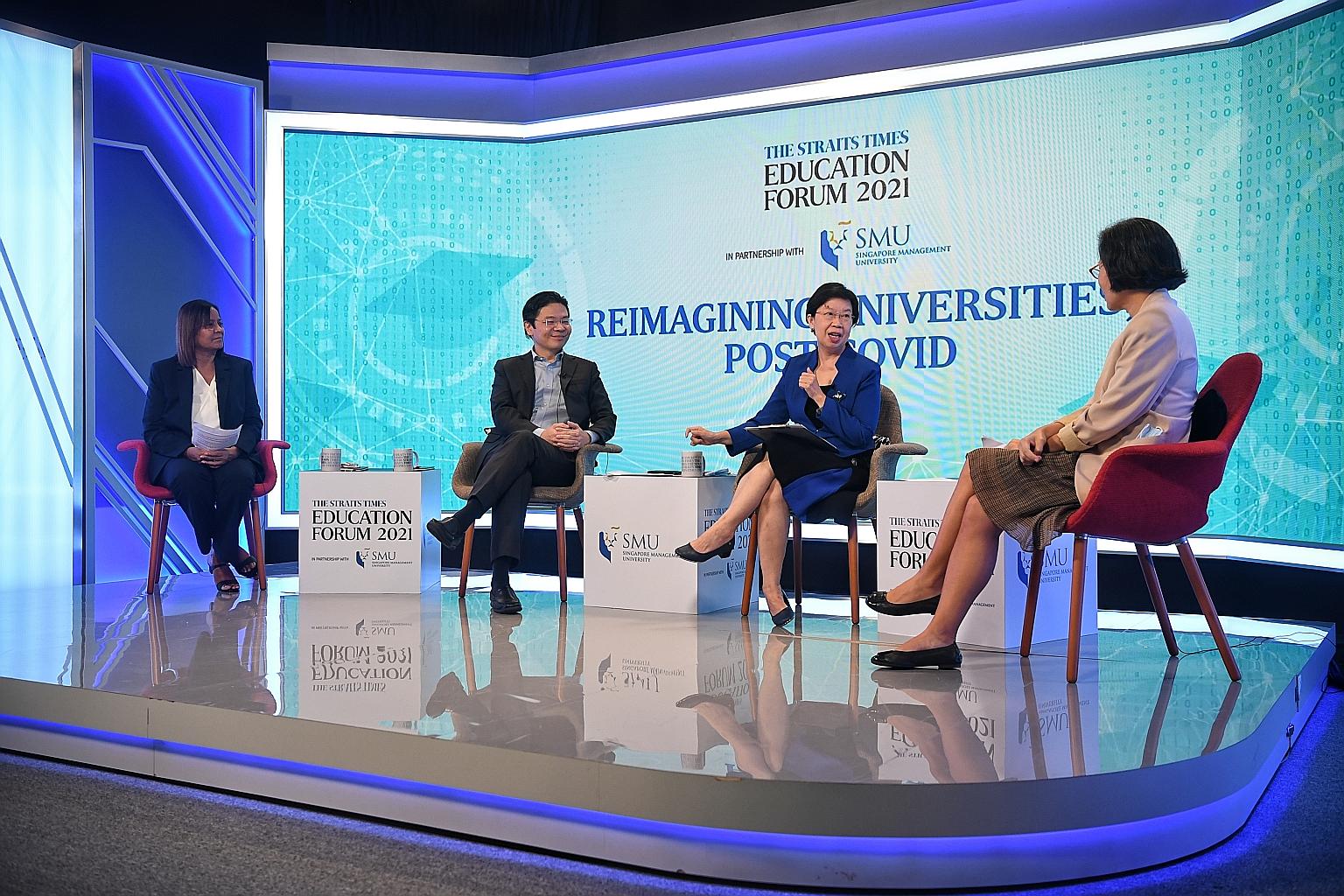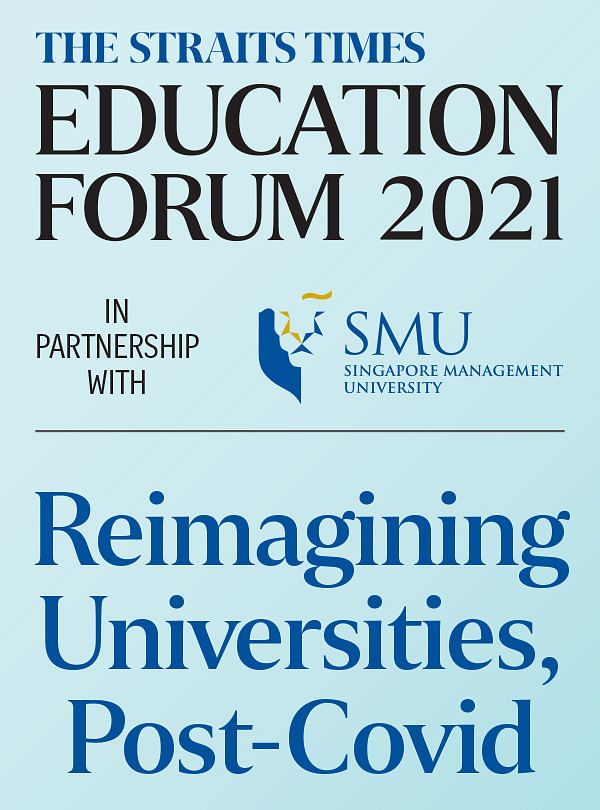Lawrence Wong lays out 3 areas where universities can do better
The reimagined unis will play a key role in shaping future of S'pore society, he says
Sign up now: Get tips on how to help your child succeed

Education Minister Lawrence Wong speaking at The Straits Times Education Forum 2021 on Reimagining Universities, Post-Covid, yesterday. With him are (from left) ST senior education correspondent Sandra Davie, Singapore Management University president Lily Kong and Ms Lydia Lim, head of schools and education products at Singapore Press Holdings.
ST PHOTO: KUA CHEE SIONG
As Covid-19 pushes learning institutes to transform, universities in Singapore must disrupt themselves or be forced to do so.
Education Minister Lawrence Wong stressed this yesterday as he laid out three areas in which Singapore universities can do better - in teaching and learning, embracing lifelong learning, and collaborating with industry.
Even before Covid-19, there was talk that the university sector would be completely disrupted by technology.
The pandemic has prompted more questions about such trends, and there are further predictions that there will be so much disruption that some universities may have to close, he said.
"We are not immune to these trends... But our approach has been not to allow external forces to disrupt us, but to proactively disrupt ourselves instead."
He spoke at The Straits Times Education Forum 2021 on Reimagining Universities, Post-Covid, held in partnership with the Singapore Management University.
The forum, held online this year, examined the ripple effects of the coronavirus pandemic on higher education and the changes that it will forge.
Doing better in teaching and learning
The criticism that universities prioritise research over teaching is not new but is not always fair, said Mr Wong.
"In my experience, some of the best researchers are also excellent and most inspiring teachers. But this criticism exists, and we are aware of it."
Globally, there are also criticisms that the university curriculum has not changed much.

"But in Singapore, we've continually been looking at ways to refresh and update the quality of teaching and learning in our universities."
Students get opportunities to learn outside of lectures, including in seminars, collaborative projects, overseas opportunities, service-based learning and internships.
"More recently, all our universities are looking at ways to provide more holistic learning... We are also looking at greater breadth, and more interdisciplinary and cross-domain knowledge."
Embracing lifelong learning
Mr Wong noted that for a long time, the model of university education has been about front-loading education at a young age - with a fixed period of education and then work.
But Singapore needs a rotational model of learning now, where work and education are rotated over the course of one's career.
This means that universities will have to cater for multiple entry points along the age distribution, rather than focusing on full-time education, he said.
This could entail looking at offering part-time degrees for working adults and modular offerings that can be stacked towards a qualification later on.
Universities must also cater for multiple entry points along the entire skills spectrum, including technical, hands-on skills, practical life skills and even social skills like relationship negotiation.
Collaborating closely with industry
Universities can and must continue to do more in this area, said Mr Wong, adding: "When universities don't move fast enough, they become at risk of being disrupted."
The polytechnics are doing well in getting industry inputs on the school curriculum, and the universities will also have to take a leaf from the poly sector, Mr Wong said.
Noting the critical roles of universities to the well-being of Singapore and Singaporeans, Mr Wong said: "I hope to see universities of the future becoming centres of learning, nurturing a broad range of skills, having close collaboration with the industry and nurturing everyone to be a lifelong learner.
"And as our universities continue to rebuild and reimagine themselves, they will play a very important role in shaping the future of our society."
COVID-19 A CHANCE TO RETHINK, REVITALISE UNIVERSITY EDUCATION • THE BIG STORY


